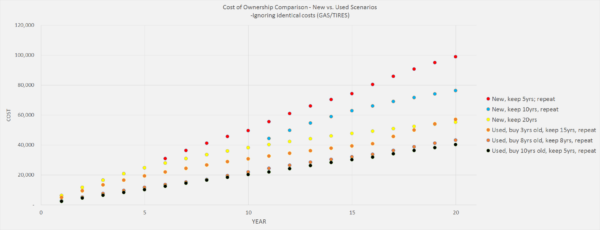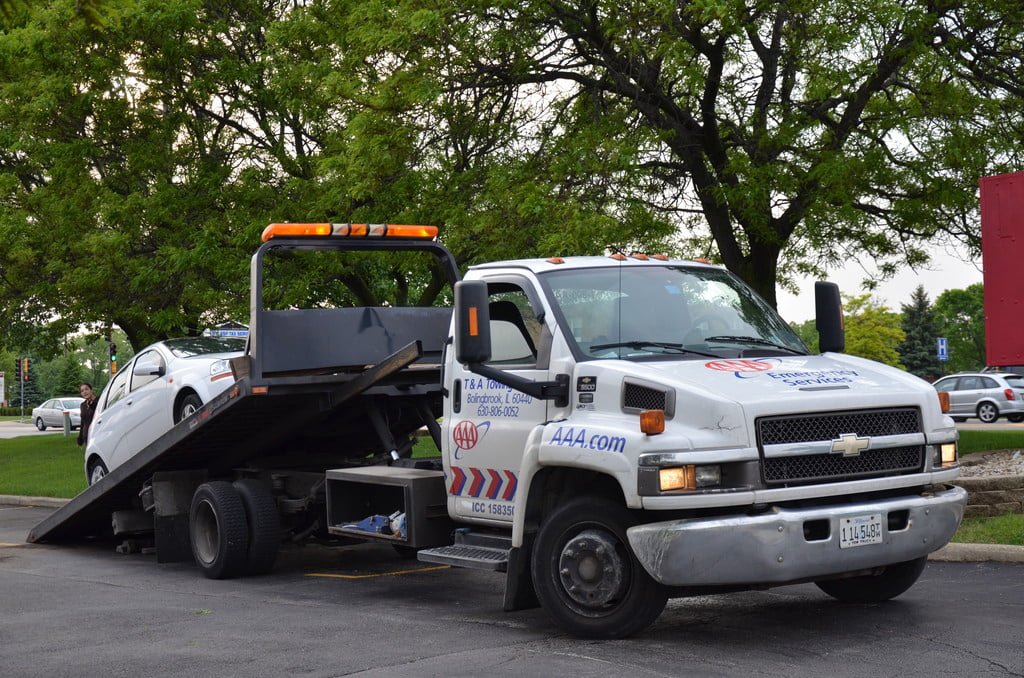Everyone seems to drive a nicer car than you. They’re all newer than yours too.
Cars are such an extension of our selves in this auto-obsessed country of ours, which is unfortunate, because cars often have an inverse effect on optics: the richer you look, the less rich you are.
Why is that? Because you were rich before you spent all your money on that car.
And yet, there is still a pull, and it will happen for everyone who owns a car. It’s the pull to update your car, to get something slightly newer, slightly nicer.
When is the right time to make it happen?
Table of Contents
When it’s dead
If your car has died that isn’t necessarily an indication that it’s time to buy a different one.
I know for some people it’s not an option, but for some people, it just doesn’t feel like an option, even though it might be.
For example, when my car died, I went car-free for a year. I rode a bike, took the bus, and rented cars frequently. Over that year, I saved up enough money to buy my next car.
Do you have enough money to buy a car? What could you do to get there?
When it’s dying
Cars are like people; eventually you start keeping the parts together with metal coat hangers.
Oh wait, sorry, that’s not how that phrase goes.
Anyway, eventually costs can skyrocket with an older car. The alternator goes, the transmission dies, the engine is shot. Older cars can do some weird things; my mom had a car whose dashboard melted (this was a known issue, incredibly).
It might be tempting to call it a day when you’re hit with a $2,000 bill, or something that’s worth more than the car is. But I’ve heard plenty of stories where people ditch a car because of a big repair bill, only to spend a much larger amount on the next car! Unless you’re sure that large bills are going to be a regular thing in your life, this doesn’t make sense.
And anyway, a car’s repairs will almost always cost more than the car is worth. Which leads me to my next point.
When it’s just old
Maybe your car isn’t dead or dying. It’s just old. Maybe the repairs are ticking up, and you’re thinking that you want to trade it in while there’s still value.
But the value of the car, when it’s older, is more in the having of it, than any resale value..
The car has value because you own it and you’re driving it. That’s not value you can recapture, but it’s value none the less. And you derive that same value regardless of whether the car is new or 20 years old.
Rule of thumb
You can do all the math you want, factoring in miles driven per year, average/expected repair cost, insurance, etc.
But I have a less quantitative rule of thumb that I believe will save you money over the long term:
Run your car into the ground.
Keep it as long as you can. Keep it until the car is more repair than car. That’s the way to extract the most value from a car, no matter whether you bought it new or used. You’ll own the car outright, and not having to make payments can add up to a lot of money, even if you have to repair it periodically.
Of course, only you can decide when it’s truly “dead”. Sometimes it’s just a gut feeling. Just make sure that it’s not a feeling of “I wish I had a better car“.
Bonus analysis
I was particularly taken by this analysis about buying new cars versus used cars, and how often to switch.
It turns out that in the analysis, the cheapest option is to buy a 10 year old car and swap it out every 5 years, and the most expensive options are all buying new cars, unless you buy a new car and keep it for over 20 years.

I still wouldn’t use this to advocate for buying a new car though.
But enough about me. How do you feel about buying a new car?


